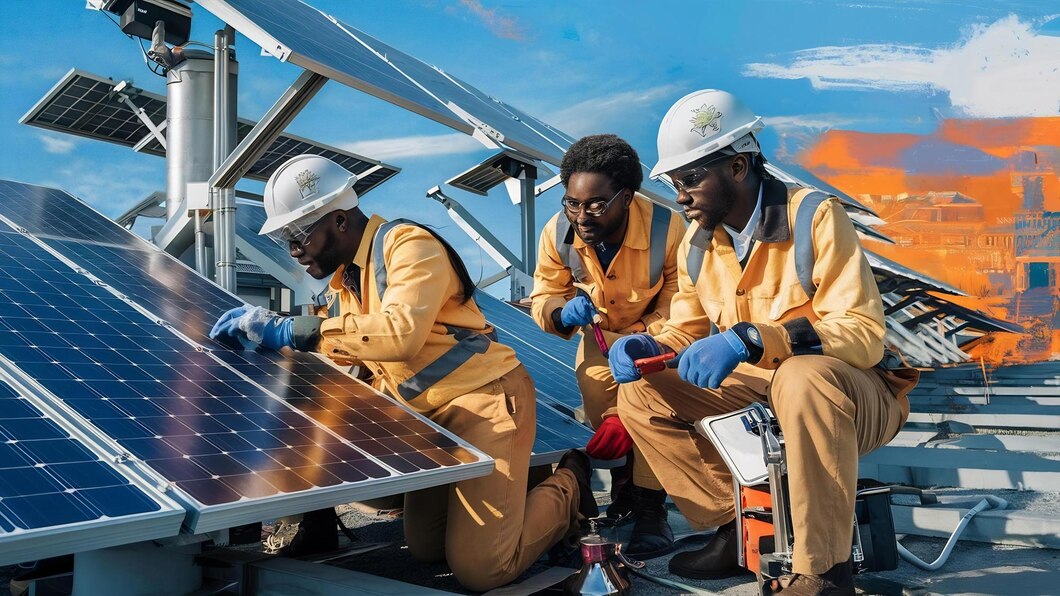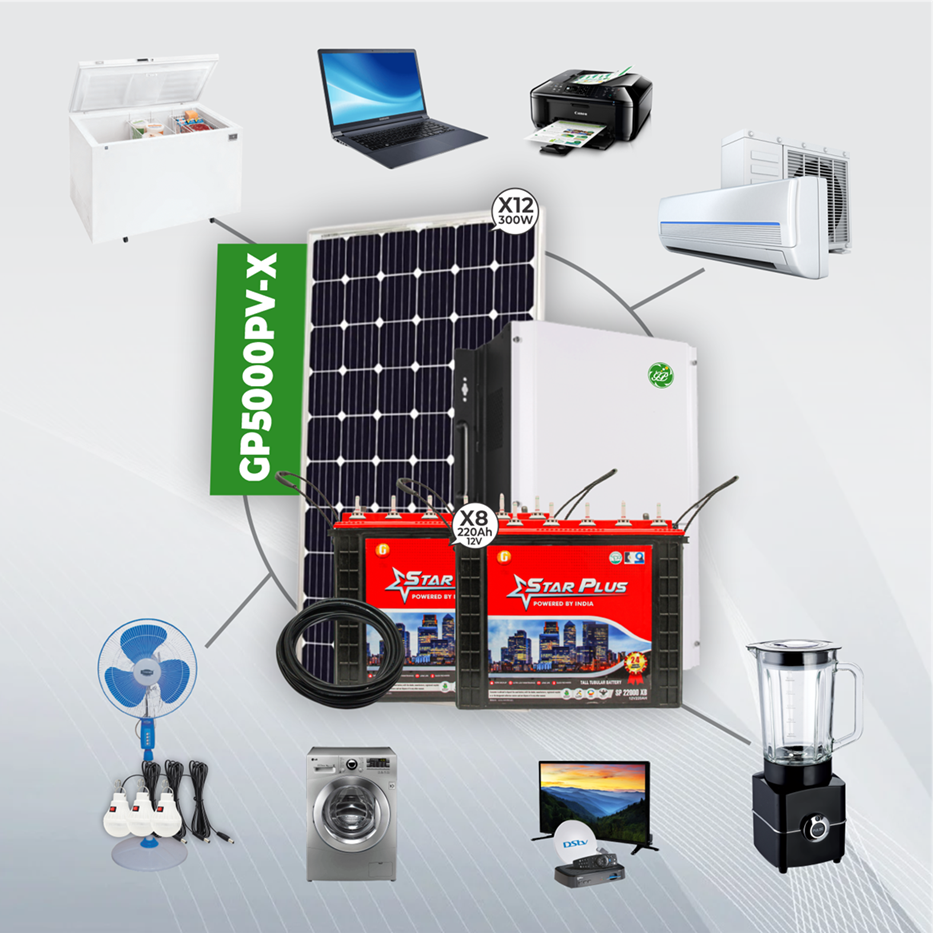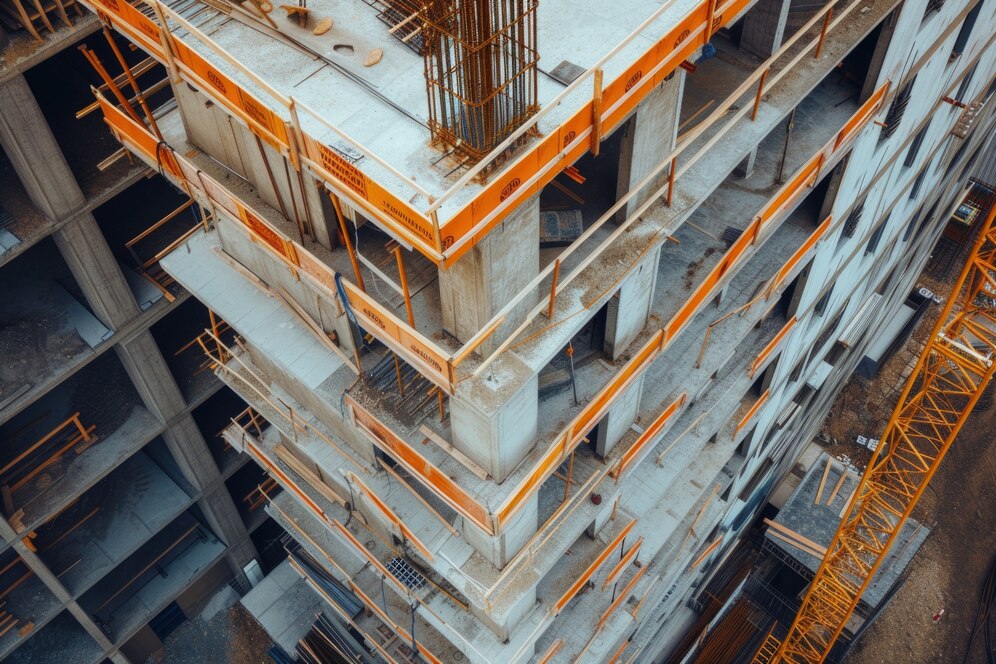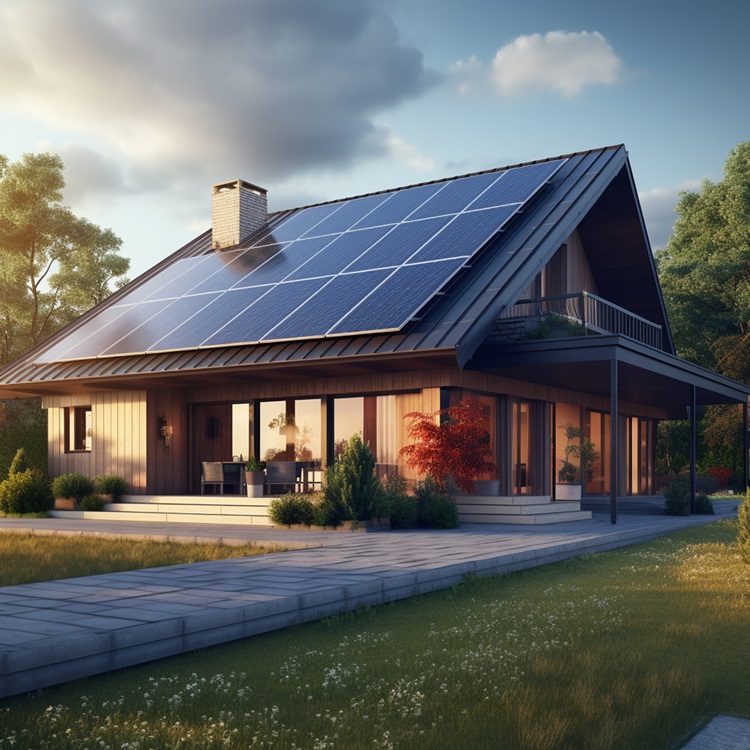
Solar energy is gaining popularity as people seek sustainable and affordable power options. But for renters, installing solar panels can be challenging due to legal, logistical, and financial factors. The process can be more complex than if you owned the property, and you may not receive the same benefits as you would if you owned the property. However, it is possible to have solar panels installed as a renter, but you’ll need to be aware of additional details beyond just hiring contractors to install the panels on your roof. In this guide, we explore five key considerations that renters must evaluate before installing solar panels in their rented properties. By addressing these factors, renters can make informed decisions that align with their sustainability goals, financial constraints, and living arrangements.

Solar Hybrid Solution
GP 7000PV-X
Elevate your energy independence with this powerful solution. Featuring 16 high-efficiency 300W solar panels, it seamlessly captures sunlight for reliable electricity. Backed by 12 robust 12V 220Ah Tubular Batteries, it ensures consistent performance day and night. The advanced 7000W solar inverter optimizes energy utilization, catering to substantial energy needs. Redefine your energy landscape sustainably with the GreenPower Solar Hybrid Home System GP 7000PV-X.
Seek Permission from your landlord or Leasing Agent Before Solar Panel Installation
If you’re planning to install solar panels in a rented property, it’s essential to obtain permission from the landlord beforehand. This is because modifying the property without permission can cause legal issues and even lead to eviction. However, you can address your landlord’s concerns by explaining the minimal impact of solar panel installation and offering information about reputable installers who can ensure a professional and safe installation.

It’s also important to discuss the insurance implications of installing solar panels, as it may affect the property’s coverage. Collaborate with your landlord to ensure that the property remains adequately insured, and consider discussing the possibility of adjusting the lease to reflect the installation. When initiating the conversation with your landlord, emphasize the mutual benefits of solar energy, such as energy savings and increased property value. Highlight the available incentives, such as tax credits, that can make the installation more affordable. Early communication, transparency, and collaboration are key to obtaining approval and enjoying the benefits of solar energy in a rented property.
To ensure that everything is clear and documented, it’s recommended to put any agreements in writing. This should detail the installation terms, responsibilities, and any lease adjustments, if applicable. By following these steps, you can help ensure that the installation of solar panels is a positive experience for both you and your landlord.
Assess Electrical Infrastructure and Building Stability

When considering installing solar panels in a rented property, it’s essential to evaluate both the wiring and structural integrity of the building. Older homes, particularly those that haven’t undergone recent updates, may lack the necessary electrical infrastructure to support solar panel connections. Conduct thorough research into the property’s history, including its construction date and any renovations, to assess its readiness for solar integration.
Furthermore, the physical condition of the building is crucial. If the roof, for instance, displays signs of wear and damage, installing solar panels could compromise its structural integrity. Before proceeding, ensure that the building can safely accommodate the weight and installation of solar panels without risking damage to its structure. Consulting professional engineers or contractors may be necessary to assess both the electrical capacity and structural soundness of the property.

Solar Hybrid Solution
GP 7000PV-X
Elevate your energy independence with this powerful solution. Featuring 16 high-efficiency 300W solar panels, it seamlessly captures sunlight for reliable electricity. Backed by 12 robust 12V 220Ah Tubular Batteries, it ensures consistent performance day and night. The advanced 7000W solar inverter optimizes energy utilization, catering to substantial energy needs. Redefine your energy landscape sustainably with the GreenPower Solar Hybrid Home System GP 7000PV-X.
Additionally, consider the shape and orientation of the building for solar panel placement. Buildings with limited roof space or unfavourable orientation may not be suitable for efficient solar panel installation. Assessing these factors will help determine the feasibility and effectiveness of solar panel integration in the rented property.
Permits and Inspections for Solar Panel Installations
While obtaining landlord approval and appeasing HOA regulations are significant milestones, securing government permits and passing inspections are essential for ensuring compliance with local regulations and safety standards.
Firstly, familiarize yourself with the permit requirements specific to your locality. Visit your town and state government websites to access lists of regulations and building codes relevant to solar panel installations. Since the responsibility for obtaining permits typically falls on the tenant, take proactive steps to initiate the permit application process. Schedule a visit to your local government office to request the necessary installation and zoning permits. Ensure that all required documentation is submitted accurately and promptly to avoid delays in the installation process.

Solar Hybrid Solution
GP 7000PV-X
Elevate your energy independence with this powerful solution. Featuring 16 high-efficiency 300W solar panels, it seamlessly captures sunlight for reliable electricity. Backed by 12 robust 12V 220Ah Tubular Batteries, it ensures consistent performance day and night. The advanced 7000W solar inverter optimizes energy utilization, catering to substantial energy needs. Redefine your energy landscape sustainably with the GreenPower Solar Hybrid Home System GP 7000PV-X.
Once the solar panels are installed, the journey doesn’t end there. Before the system can be connected to the local power grid and start generating energy, a thorough inspection by a professional from the local government is required. This inspection serves to verify that the installed system complies with all applicable building, electrical, and safety codes. The inspector will assess the quality of the installation, ensuring that it meets industry standards and poses no safety risks. If any discrepancies or issues are identified during the inspection, corrective measures must be taken promptly to address them. This may involve making adjustments or repairs to the installation to bring it into compliance with regulatory requirements.
Upon successful completion of the inspection and any necessary remediation, the solar panels can finally be connected to the power grid and begin delivering clean, renewable energy.
Insurance and Rent Implications of Solar Panel Installation
Installing solar panels can impact insurance and rent, particularly for renters. While solar panels are typically covered by insurance policies, their addition may lead to a slight increase in premiums. However, since you’re not the homeowner, any insurance changes would be the responsibility of your landlord or leasing company. Convincing them of the benefits of solar installation may pose a challenge.
Moreover, if the solar panels are installed separately on the ground, your landlord may need to obtain a separate insurance policy for them. Unfortunately, these policy hikes could result in higher monthly rent or utility costs for tenants. Since renters may not benefit from tax incentives associated with solar panels, they should anticipate potential price increases. Solar panels may take years to offset costs, so renters should consider the long-term financial implications carefully.
Exploring Renewable Energy Options with Your Electricity Provider

If installing solar panels on or near your rental property proves unfeasible, there’s still a potential avenue for accessing green energy: your electricity supplier. In many areas, local electrical providers source a significant portion of their energy from solar farms situated outside urban areas. You might be fortunate enough to have access to plans that allow you to draw energy directly from these solar farms, either as a standalone option or alongside traditional electricity sources.
Start by contacting your electricity provider to inquire about any available “green” plans. These plans could offer access to renewable energy sources like solar power, aligning with your sustainability goals. However, if your current provider doesn’t offer solar options, you may consider switching to an alternative provider that does. Keep in mind that this option is uncommon for renters, as landlords typically dictate the choice of electricity supplier. Nonetheless, it’s worth researching alternative providers with solar options and discussing the possibility of switching with your landlord.

